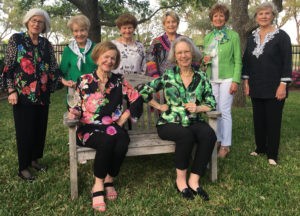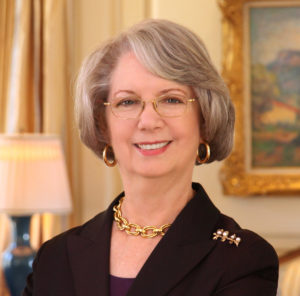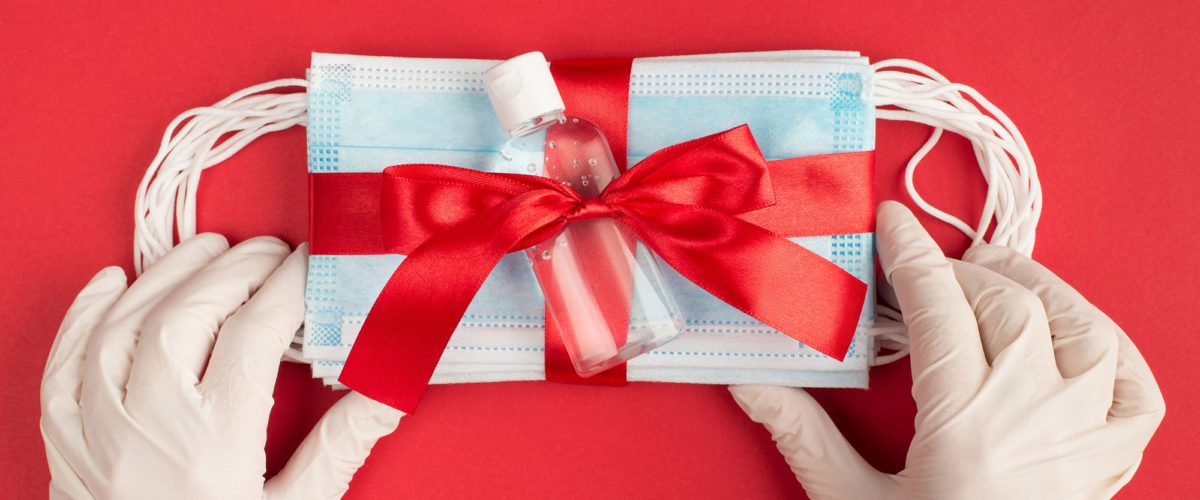Yesterday was my 80th birthday. Despite the unopened and flagged emails that have piled up since the Texas deep freeze in mid-February and the papers overflowing on my office desk, I gave myself the day off to reflect, remember, to start planning again and to rejoice.
One year ago yesterday — St. Patrick’s Day — the first Texan died of COVID, and my small birthday party in a close friend’s backyard was the last time I went to a party. It is appropriate, then, that my first party since almost all of my family and friends have been vaccinated should be another small, safe birthday party.
 My original plan in 2020 was to spend a week with one of my oldest, dearest friends in Carmel, Calif., her happy place. As COVID crept southward from Washington, we grew concerned about our trip. Since we were flying through Phoenix to Monterey, we were not worried about our exposure. A younger friend in San Francisco assured me we should be fine: “Just carry wipes.” Still, we worried. We did not want to get stuck in a Carmel inn during quarantine. Another message from San Francisco settled it. Someone had died in the county immediately north of Carmel, and San Francisco was on lockdown.
My original plan in 2020 was to spend a week with one of my oldest, dearest friends in Carmel, Calif., her happy place. As COVID crept southward from Washington, we grew concerned about our trip. Since we were flying through Phoenix to Monterey, we were not worried about our exposure. A younger friend in San Francisco assured me we should be fine: “Just carry wipes.” Still, we worried. We did not want to get stuck in a Carmel inn during quarantine. Another message from San Francisco settled it. Someone had died in the county immediately north of Carmel, and San Francisco was on lockdown.
Close friends stepped in to throw a little party for me. A few people, already concerned about the coronavirus, declined, but the party was relaxed, and we laughingly practiced social distancing and elbow-bumping for the first time. We had no idea what lay ahead.
The next morning — Wednesday — I returned to Dallas with my son. Renovations on the condo I had purchased a year earlier were almost complete, and I rushed to Dallas to make final selections of hardware, lighting and the like before the situation grew worse. I was too late.
The following Tuesday, the Dallas County judge issued tough stay-at-home orders, and I spent the next seven weeks in lockdown in a small apartment on the 15th floor of a large high-rise, while work at my condo ground to a screeching stop that lasted for several months. I kept a food journal. I cooked 150 meals and ate them alone during that time, while family — usually the oldest grandson — did my grocery shopping.
While I was in Dallas, my hometown of Corpus Christi had its first seven cases. I knew most of those who were sick, including my friend and the community’s beloved retired rabbi. Weeks later, he became the county’s third casualty. His widow had to grieve alone, deprived of the rituals of death and the hugs from family and friends.
“In December, I struck 13 names off my Christmas card list, friends who had died during the year.”
In December, I struck 13 names off my Christmas card list, friends who had died during the year — not all from COVID but some from the extreme isolation that accompanied senior living facilities and memory care units. And I have lost at least a half-dozen friends since then.
Just last week, I wrote notes inside three copies of my spiritual memoir of grief, Reclaiming Joy, to the widows and sister of recent COVID victims. And so it continues.
It has been a terrible year. While some saw “end times” in all that befell us last year, I thought more about the plagues visited on Pharoah until he allowed Moses and the Children of Israel to leave Egypt.
The deaths of two friends who were faithful men of God — a Jewish rabbi and a Christian minister — reminded me that COVID, like medieval plagues and so many horrors of life, does not distinguish between the good and the bad, the church and the bar. Bad things have happened over and over again to good people in the past year.
“COVID, like medieval plagues and so many horrors of life, does not distinguish between the good and the bad.”
I am reminded of the words of Jesus in the Sermon on the Mount: “You have heard that it was said, ‘You shall love your neighbor and hate your enemy.’ But I say to you, love your enemies and pray for those who persecute you, so that you may be children of your Father in heaven; for he makes his sun rise on the evil and on the good, and sends rain on the righteous and on the unrighteous.”
I was shocked a year ago when communities across the country began canceling summer events. Surely we would see the end of the pandemic after warm weather arrived and lockdown ended. I never could have guessed that so many events would be canceled in summer 2021. I can only pray that the president’s estimate of a Fourth of July return to normalcy is correct, even as I nervously watch the daily number of new cases in Texas since the governor lifted all the mandates.
But I am hoping. And I am beginning to plan, knowing that my plans may need to be canceled: dinners out with vaccinated friends, a belated birthday dinner with the entire family in a week, outdoor worship (my first in-person service in a year) on Easter Sunday, and a select few trips.
And, finally, the completion of my condo in Dallas, a full two years after I purchased it. At times I feared I would die of COVID before I ever got to enjoy living there. During a four-day emergency stay in the hospital two weeks ago, I was confronted with the very real possibility. And I wondered: Was this an omen of what the 80s would look like?
“I need to live my life as if I might die tomorrow or live to 100.”
Now I am home again. My body is recovering on its own, and every day I am closer to normal. I am beginning to plan a five-year transition from old to very old, searching for ways to lessen the work that has put me on standby 24-7 for the past 12 years since my husband’s death, figuring how to have a lifestyle free of the stress, pressure and deadlines that have accompanied me most of my life.
My attorney regularly reminds me that I need to live my life as if I might die tomorrow or live to 100. I am still trying to figure out how to do that.
My dad’s grandfather, mother and sister all lived past 100. I may have another 20 or more years in front of me. How do I make them worth living?

Ella Prichard
Ella Wall Prichard is a journalism graduate of Baylor University who is known as a philanthropist and advisor to Baptist causes in Texas and beyond. A longtime member of First Baptist Church in Corpus Christi, she has served on committees and boards of the Baptist General Convention of Texas and the Cooperative Baptist Fellowship. She was a member of the Baylor Board of Regents and a director of the Baylor Alumni. Her book, Reclaiming Joy: A Primer for Widows, recounts the story of her husband’s untimely death and her suddenly finding herself the president of the family oil business.


